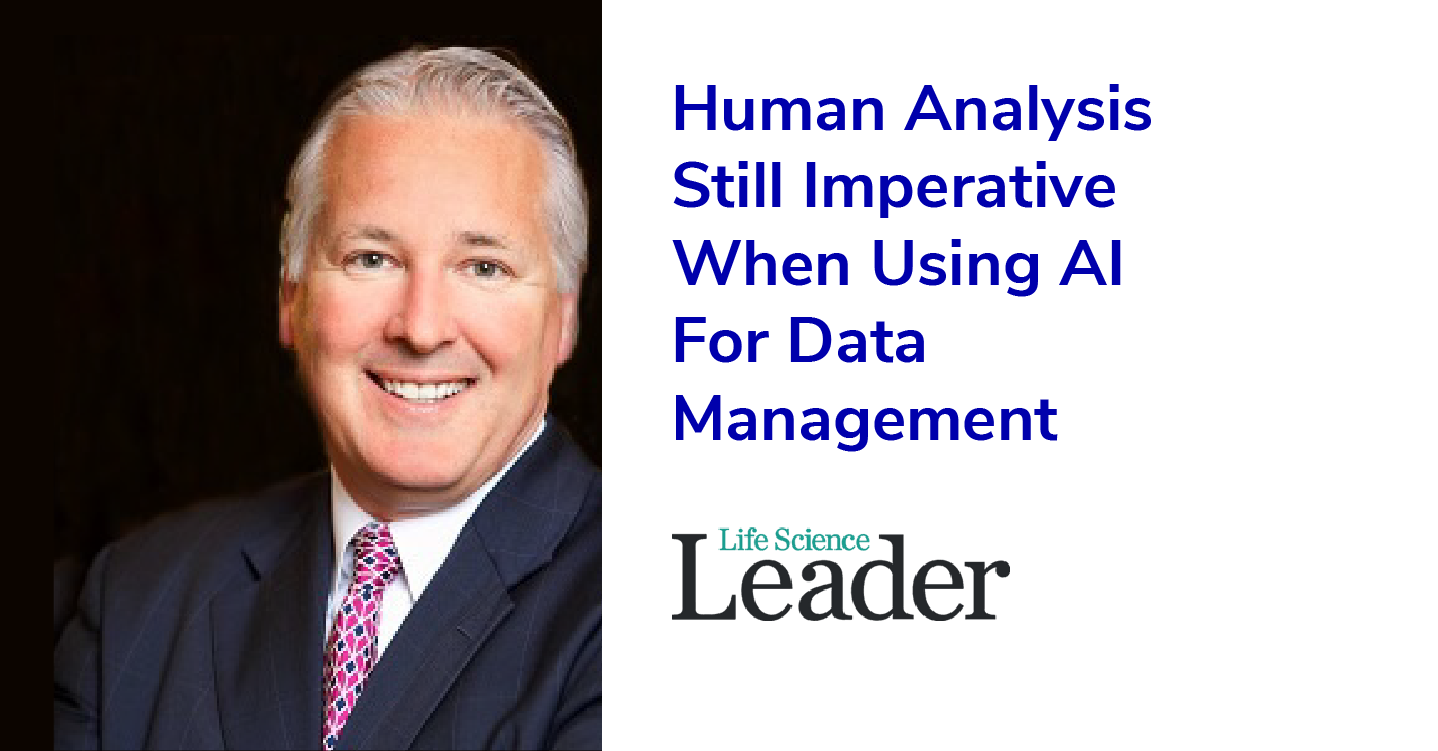Recently, Anju’s CEO Larry Birch was featured in Life Science Leader with an article on the use of AI for data management. Read on to learn why human analysis is still imperative when using AI for data management, especially in the life sciences sector throughout the drug development process.
By Larry Birch
In the wake of a massive wave of mixed reviews for ChatGPT, the concept of garbage in and garbage out has never been more apparent. The benefits of ChatGPT, a natural language processing tool driven by AI technology, and other chatbot AI tools, while potentially useful in managing and organizing data, are only as good as the data they receive. The importance of the validity of data was amplified in the media storm regarding the shortcomings of Google’s new AI chatbot, Bard, which cost Alphabet, Inc. over $100 billion in market value.
For us in the pharmaceutical industry who rely on the quality and integrity of data, the lessons are crystal clear. Our ability to deliver on our mission to extend and enhance the lives of patients suffering from various diseases, and to deliver value to our investors, resides squarely on our ability to analyze and utilize quality data from the start and throughout the drug development process.
The global enterprise data management market was $73 billion in 2021 and is growing at 13% per annum. The amount and complexity of the data in the life sciences industry are increasing exponentially.
AN EVER-INCREASING QUANTITY OF DATA
The global evolution of a remote workforce and the collection of remotely gathered data increase the potential for unsupervised data inputs. This trend was accelerated on the heels of the global COVID pandemic. More patients are participating in clinical trials from home and inputting data from smartphones and other digital platforms. And, as the global use of mobile devices increases, we are experiencing a variety of unintended consequences regarding data collection and corruption, especially the problem of version control.
The avalanche of Big Data coming from various sources and a variety of data formats, confounds our ability to aggregate and structure data. The volume of data and the speed it is coming in magnify the data management challenge, making tools such as a clinical trial management system (CTMS) that are integrated with various data silos even more essential to decision-making.
And then, once data are migrated to a single repository, AI and machine learning can be used to increase data’s integrity.
If used effectively, Big Data brings the opportunity to drive improvement, engagement, and acceleration of clinical trials from planning and patient recruitment through trial completion and submission, all the while delivering higher- quality results. Scaling these frameworks out at program levels will improve predictive modeling of drugs and biological processes through clinical and molecular data. That’s when we start to see the needle move on our ability to materially deliver change to people’s lives.
While data management may be considered a small cog in the drug development process, if done wrong it can mean the difference between success and failure. The application of AI and machine learning software tools will revolutionize drug development — increasing the speed to fail, as well as the speed to clinical development. But these tools must include human interpretation, or we risk garbage in and garbage out results.
LARRY BIRCH is CEO Of Anju Software and has 30 years of experience in SaaS and life science technologies.
